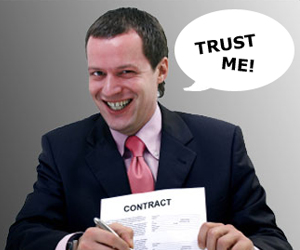Timeshare presentations have a notorious reputation for their high-pressure sales tactics and persuasive techniques. While the promise of dream vacations can be appealing, the methods used to secure sales often leave potential buyers feeling overwhelmed and trapped. In this article, we’ll take a closer look at the manipulative techniques employed during timeshare presentations and how consumers can protect themselves from falling victim to high-pressure sales.
1. Lengthy and Exhausting Presentations
Timeshare presentations are often deliberately lengthy, lasting several hours. This strategy is intended to wear down attendees, making them more likely to agree to the sale simply to end the exhausting process.
2. Emotional Appeals and Psychological Manipulation
Sales representatives frequently employ emotional appeals and psychological manipulation to create a sense of urgency and desire. They use techniques like storytelling, flattery, and testimonials to build an emotional connection with potential buyers.
3. False Scarcity and Limited-Time Offers
Salespeople often create a false sense of scarcity by presenting limited-time offers and exclusive deals. This plays on the fear of missing out (FOMO) and encourages impulsive decision-making.
4. The “No-Exit” Scenario
Sales presentations may emphasize the idea that there is no way out of the timeshare commitment, further pressuring attendees to make an immediate decision. This “no-exit” scenario is a common fear tactic.
5. Misleading Comparison to Traditional Vacations
Timeshare sales reps frequently compare the cost of timeshare ownership to the expenses of traditional vacations, highlighting the supposed savings. However, these comparisons are often exaggerated and do not reflect the full financial reality of timeshare ownership.
6. Hidden Fees and Ongoing Costs
Sales presentations often downplay or conceal maintenance fees, exchange fees, and other ongoing costs associated with timeshare ownership. This lack of transparency can lead to financial surprises for buyers.
7. Relentless Persuasion and Pressure
Sales representatives employ relentless persuasion and pressure to convince potential buyers to sign contracts. They may use multiple rounds of negotiations, manager involvement, and even guilt tactics to secure a sale.
8. The “Upgrade” Strategy
A common tactic involves enticing buyers with the idea of “upgrading” their initial purchase, which often involves additional costs and commitments. This strategy can lead to higher financial obligations and longer contracts.
9. Obligatory Tour Attendance
In some cases, potential buyers are required to attend a resort tour before or after the presentation. This mandatory attendance can be used as a leverage point to pressure attendees into purchasing a timeshare.
10. The Power of Saying “No”
To protect themselves from high-pressure sales tactics, consumers must remember the power of saying “no.” Attendees should feel comfortable declining offers and taking time to make an informed decision, free from coercion.
Conclusion
High-pressure sales tactics during timeshare presentations can create a stressful and overwhelming experience for potential buyers. Recognizing the manipulative techniques used by sales representatives is the first step in protecting oneself from impulsive decisions and financial commitments. By understanding these tactics and asserting the right to make an informed choice, consumers can safeguard their interests and avoid falling victim to high-pressure sales.




